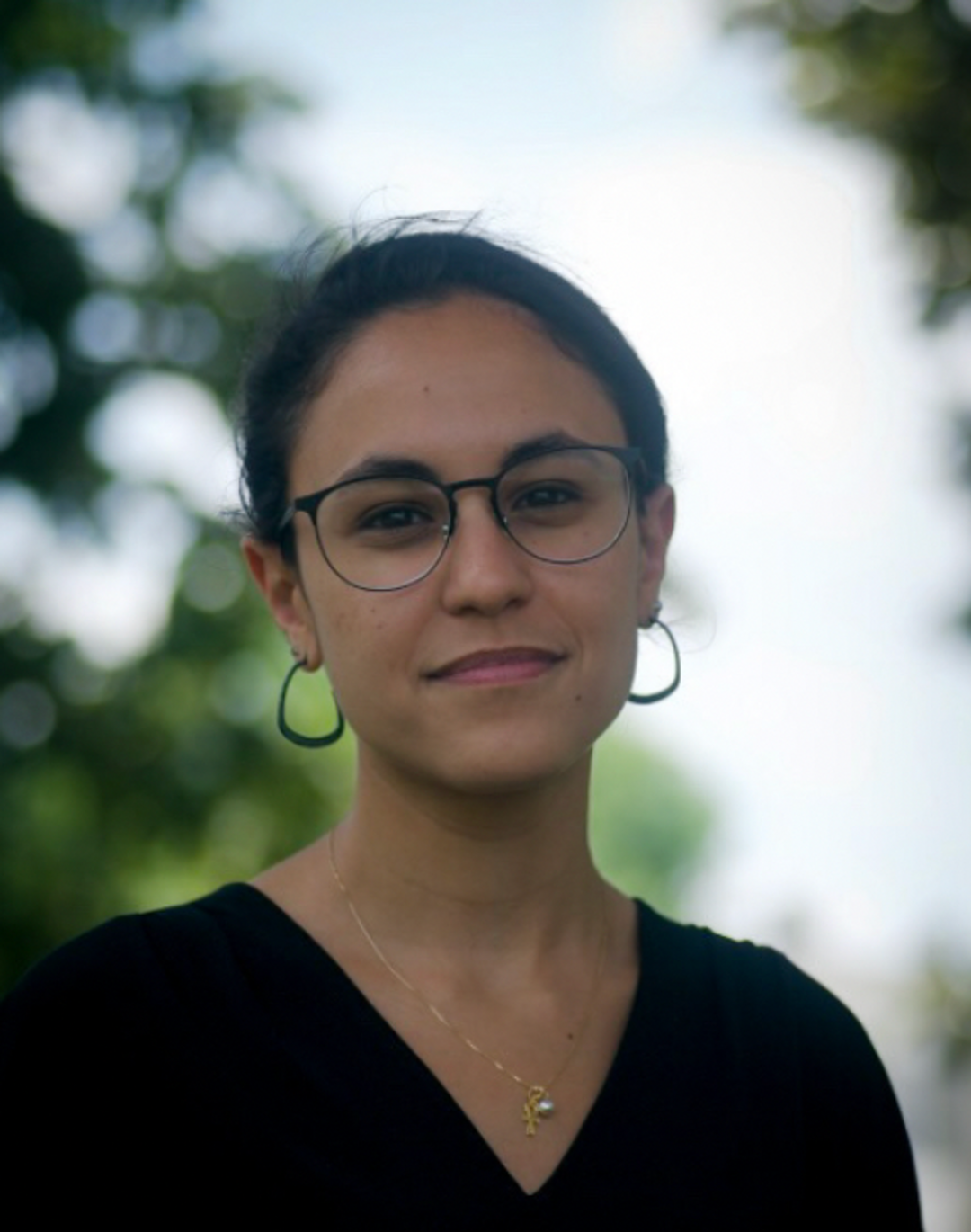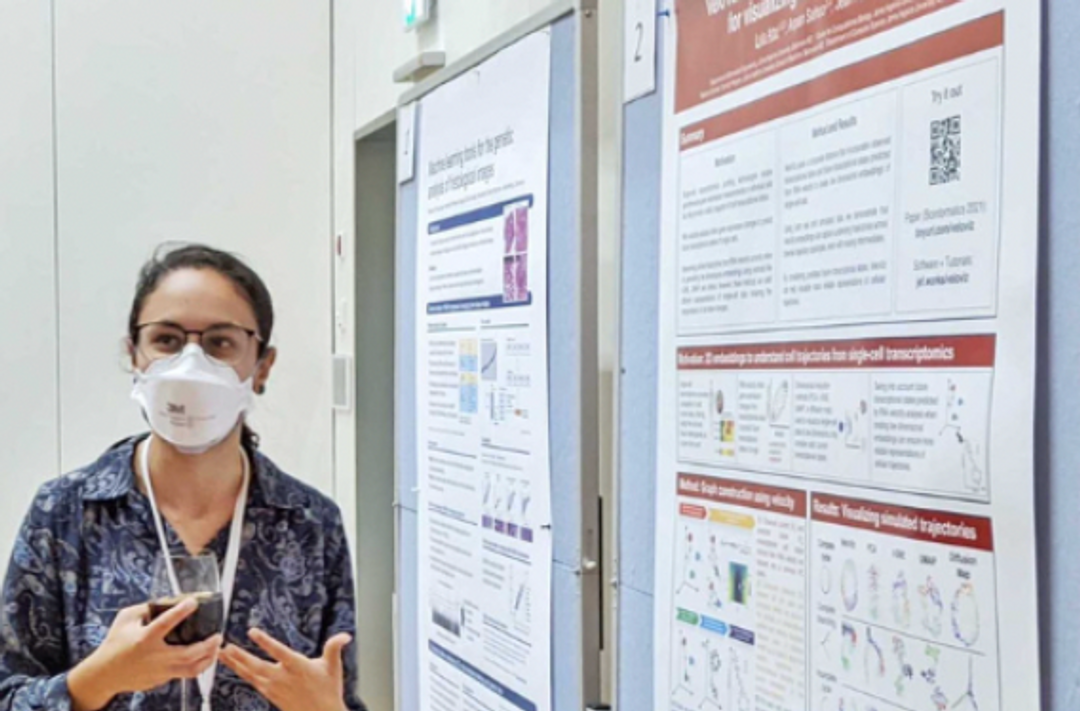Meet Lyla Atta
MD/PhD Student in Biomedical Engineering
Lyla Atta is an MD/PhD candidate at Johns Hopkins University. She is currently pursuing a PhD in Biomedical Engineering at a lab that focuses on computational biology research. Her research is on developing mathematical tools that study how cells behave in response to disease and therapy.
STEM to the Sky
Sep 29, 2022
- Were you always interested in STEM when you were younger?
- At what point did you realize you wanted to go through an MD/PhD program?
- What kinds of career options does an MD/PhD combined degree provide?
- Do you have any advice for choosing majors for those interested in pursuing an MD/PhD?
- What does your research at JEFworks Lab entail?
- Can you walk me through a typical day in your life?
- What do you wish you had known before you started the MD/PhD program?
- What has been your favorite medical school experience?
- What advice would you give to a student who is considering an MD/PhD program?
- Do you have any book/resource recommendations?
Were you always interested in STEM when you were younger?
My interests varied pretty widely growing up. I was very lucky in that I was encouraged by my parents and my teachers to explore my interests very freely. As a fifth grader, I was super obsessed with space and the solar system. At some point, I had memorized all of Jupiter’s moons… In middle school, I was really interested in physics and learning about how atoms and molecules made up all of matter.
It was really in high school that my interest in biology began. It started with learning about DNA and how it’s like a code that can be translated to make proteins. Sometimes there are mistakes in DNA, and those result in mistakes in proteins, which can lead to disease. I was very interested in how these molecules ended up making us basically.
Outside of that, I don’t think my interests were completely confined to STEM. For example, I was really excited about learning new languages. I grew up bilingual, speaking both English and Arabic. I remember looking at the world map as a young child and trying to figure out all the languages I wanted to learn. I also really enjoyed taking economic classes in high school and in college and learning more about how the way we’ve constructed society can shape our daily lives.
In short, I had no idea that this is what I would be doing when I was a kid. It was just me being lucky to have the opportunity to see where my interests take me as I went through my schooling.

(Credit: Lyla Atta)
At what point did you realize you wanted to go through an MD/PhD program?
Going into college, I knew I wanted to study biology. I was captured by this fascination with small molecules and chemical reactions. I wanted to study how they give rise to complex behaviors like what color your eyes are and even abstract things like how we think, how we feel, and how we have memories. But, at the same time, I wasn’t ready to give up all of the other subjects that I had grown up learning about.
I ended up majoring in biological engineering, which combined biology with a lot of other subject areas. It used things like physics, chemistry, computer science, and math, applying those to better understand biology. I did a significant amount of research in college, and thought that I was going to do a PhD and become a professor and do basic science research as a career. Towards the end of college, I found that I really missed the interacting and serving people part of the activities that I had started out doing in college, and I really wanted my career to incorporate that as well. That drove my decision to combine medicine and research and pursue a combined MD/PhD degree.
What kinds of career options does an MD/PhD combined degree provide?
After the end of your training, you have a very diverse set of skills that you can use and apply in various different ways. The standard MD/PhD career path is 80% research and 20% clinical duties. But that’s definitely not what a lot of MD PhDs end up doing. A lot of MD PhDs will either pick one or the other. We’ll focus primarily on research or focus primarily on clinical duties. Some researchers will have a different breakdown of how much time they spend doing research versus clinical things.
Some people will do something completely different. They’ll go into industry, and they’ll focus on drug development or figuring out how to best address certain unmet clinical needs from an industry perspective. Others will go into other career paths, like venture capital, and focus on how we best enable biotech companies to address unmet clinical needs. There’s really a ton of different things you can do with this degree, and I think that’s one of the coolest things about it.
Do you have any advice for choosing majors for those interested in pursuing an MD/PhD?
The nice thing about medical school and MD PhD programs is that they really don’t have a required major to matriculate. There are certain requirements that you have to take like biology and chemistry and things like that. But, those are individual classes that you can satisfy whenever during your college degree. College is really an opportunity to explore your interests and figure out what you’re interested in. Major in whatever you think might be useful and also you find yourself interested in, you can explore in college.
What does your research at JEFworks Lab entail?
Our lab does, in general, computational biology research, which means looking at developing computational mathematical tools to help us better understand biology. Specifically, we’re interested in variation or heterogeneity in biomolecular systems. You can have, in the same tissue or organ or person, a bunch of different cells that are supposedly the same cell type, but they exhibit all of these differences between them. We want to develop tools that help us schematically understand how different they are from each other and also understand what these differences mean in terms of how biology functions and also how disease develops.

(Credit: Lyla Atta)
Can you walk me through a typical day in your life?
During the PhD part of my training, my day can vary pretty significantly. Last year, I was taking classes. A lot of my days involved going to Zoom class, doing homework, and things like that. Now that I’m done with my courses, I have a lot more flexibility.
Usually, I’ll start my day around 8:30 or 9:00 am. I’ll spend the first part of my morning answering emails or doing other administrative things. Then, I like to spend as much of the rest of the day as possible doing things related to my projects: conducting data analysis, coding up a software package, writing a paper or grant, or whatever needs to be done that week. Most days, I’ll stop working around 6:00 or 6:30 pm. After that, I’ll spend the rest of the evening relaxing, going on a run, making dinner, reading, or catching up with a friend.
Med school will also vary pretty significantly. I can only speak to the “preclinical” part of med school where you’re taking classes. So, I would go to class starting at 8:00 am and finish either early afternoon or late afternoon. We usually have some other things going in the late afternoon/evening, including our clinical skills class or working in a primary care clinic (which we did in the second year med school). I also meet with other students as part of student groups I was involved in.
What do you wish you had known before you started the MD/PhD program?
One of the biggest things I learned, especially in college, was this idea of it’s never too late to start learning a new skill.
During my first semester of sophomore year, I took my first ever computer science class. I had never taken computer science in high school or in college. I found that I really, really liked it. For a brief moment in time, I considered switching my major to computer science. But I looked around me and I saw that a lot of my classmates had been doing this for a significant amount of time. A lot of them had been coding since high school or even middle school, and I was very intimidated by that. I was like, I don’t think I can keep up with learning this when all of my classmates have so much more experience than me.
Looking back, I ended up doing computer science stuff later on anyway as it became more relevant to my research. It turns out that I can learn it, and it’s not that bad. Even though I don’t have as much experience as other people, it’s definitely doable. I wish that I hadn’t dismissed my abilities early on. It’s a good idea to just do it anyway and pursue your interests despite any sort of concerns you may have.
What has been your favorite medical school experience?
Towards the very end of our preclinical years, we had a class that we called “Transition to the Wards”, which is basically to prepare us to go into working at the hospital and clinics. We practiced putting IVs on our classmates. That was a lot of fun and was very much a standout memory for me.
(Credit: Lyla Atta)
What advice would you give to a student who is considering an MD/PhD program?
Learn as much as you can about all of the different things you have an opportunity to learn about. For me, because I’m working in such an interdisciplinary field, I have found that a lot of random things that I learned along the way during my schooling ended up being relevant and critical in really surprising ways. There’s really no way to predict what will end up being useful. So, learn because it’s fun to learn, and it’s exciting to understand new things and think about things in different ways. You never know when learning something random will become critical to solving a problem sometime in the future.
Do you have any book/resource recommendations?
I would recommend reading The Emperor of All Maladies, which is a book by Siddhartha Mukherjee. It goes into the history of cancer treatment and how it has developed and improved over the years. It really gives some perspective on how far science has come. It’s quite motivating when you’re thinking about how you can play a small part in helping to move science forward, and how that can end up making an impact in people’s lives in the future.